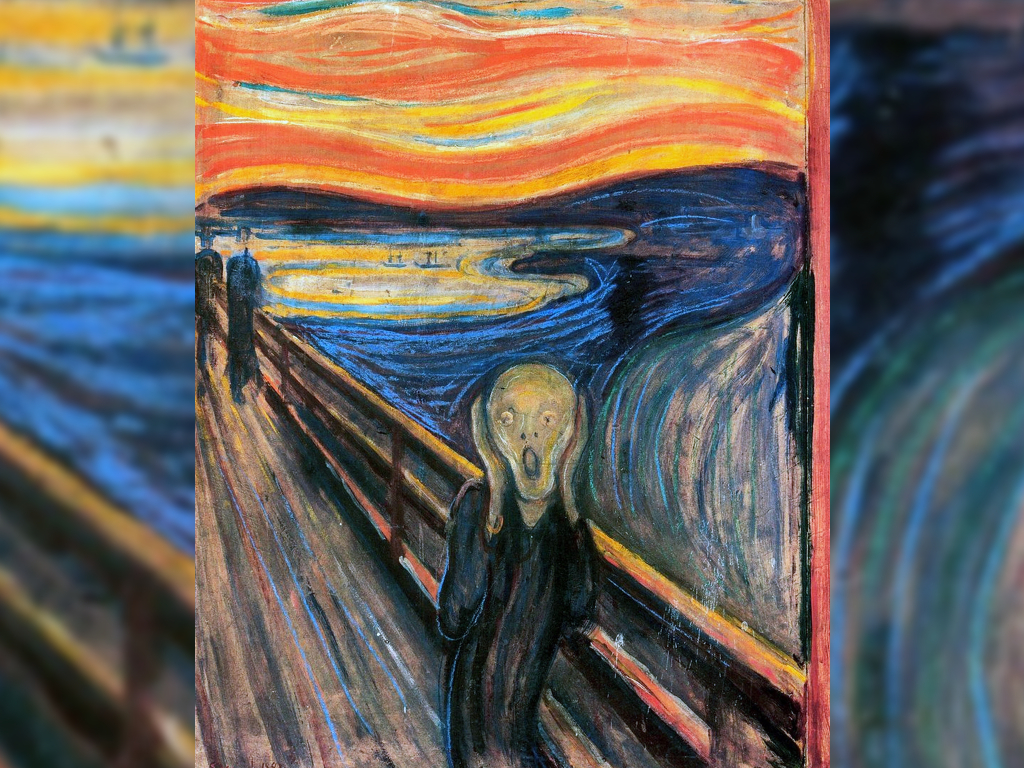One of the world’s most famous paintings, Edvard Munch’s The Scream, is becoming discoloured, and conservationists have finally figured out why.

The 1910 masterpiece, currently housed at the Munch Museum in Oslo, seems to have dimmed over the years. A research study led by Italy’s National Research Council found, in a paper published in Science Advances on Friday, that human breath is the culprit.
The low-quality paints Munch used have been subject to deterioration over time thanks to the humidity produced by human breath.
“It turned out that rather than use pure cadmium sulphide as he should have done, apparently he also used a dirty version, a not very clean version that contained chlorides,” Koen Janssens, a professor at the University of Antwerp who worked on the study, told the Guardian.
“I don’t think it was an intentional use, I think he just bought a not very high level of paint. This is 1910 and at that point, the chemical industry producing the chemical pigments is there but it doesn’t mean they have the quality control of today.”

Get breaking National news
The vibrant-yellow paint used in much of the background swirls have now become an off-white colour, the paper says.

The painting was also further damaged when it was stolen in 2004 and recovered in 2006.
During the research, Janssens says they were able to rule out lighting as a cause for the dimming colours.
“You have to start working with the relative humidity in the museum, or isolate the public from the painting, or painting from the public, let’s say, in a way that the public can appreciate it but they are not breathing on the surface of the painting,” he continued.
“When people breathe they produce moisture and they exude chlorides, so in general with paintings, it is not too good to be close too much to the breath of all the passersby.”
As the museum prepares to move locations this year, researchers are trying to figure out the best way to display the painting to protect it from further damage.
—




Comments